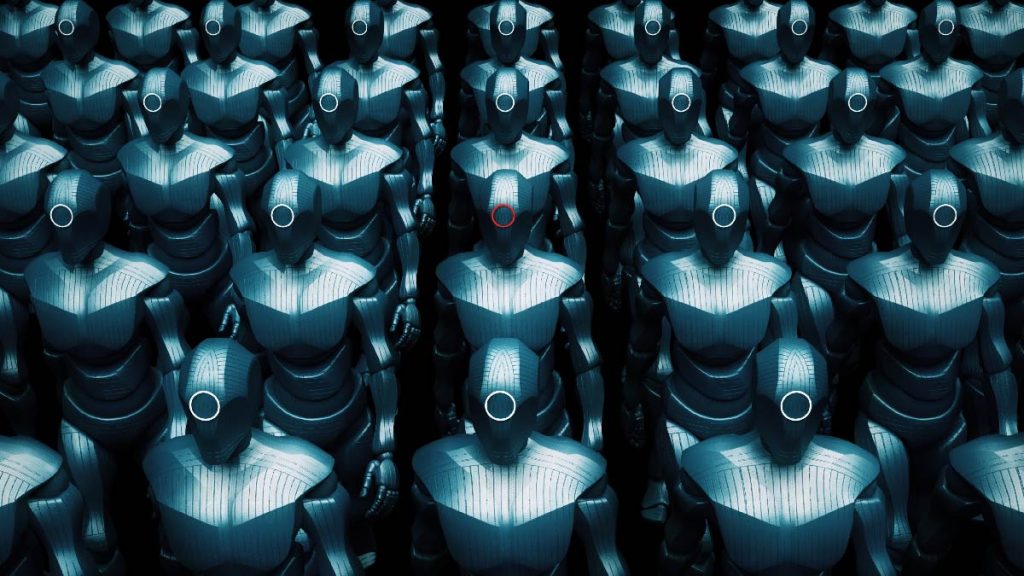
Artificial Intelligence, Ai for short, is a technology that will shake the warfare world for years to come. Various sources dissect the premises of AI in war and warn of the dangers of losing AI supremacy. Governments are creating specific departments handling Ai in future wars to win the AI battle. Technology will shape our future; warfare is not a stranger to humanity.
AI in Future War
Artificial intelligence will undoubtedly have a role in future military operations. AI can enhance productivity, decrease user workload and operate faster than humans. The research will continue to update its capability and resilience. The military must have the upper hand on the AI they are using. However, we must try not to abuse or rush into using it. Vulnerable AI systems can cause disastrous outcomes when making critical decisions. So for now, humans must remain responsible for making crucial decisions.
Enemies will most likely attack Exposed AI systems . And the current lack of AI technology resilience is a point to study. The military should invest in AI that operates in uncontested domains. Highly monitored AI tools can add value to the military while easing concerns of vulnerabilities. Such systems include Medical tools, maintenance and failure prediction tools, and detection programs. These tools will limit the risk of enemy attacks, partial data, and more. These are not the flashy use we often hear about but are more likely to happen soon.
Drones
Recently, the war between Azerbaijan and Armenia saw a frenzy of drone usage. Drones filled the skies and wreaked havoc without needing a huge number of infantry, tanks, or any impactful ground presence. Unmanned Combat Aerial Vehicles (UCAVs), also known as combat drones, carry bombs and missiles and are controlled or programmed to deliver the ordnance taking a standoff role and depersonalizing the choice to strike. Usage of drones makes providing the most damage with the fewer casualties possible. It also increases accuracy and efficacy. Drones in warfare will be a prominent presence soon.
Cyber Weapons
Just as the industrial revolution introduced a fundamental change in warfare. The Information Age is pushing for a new, low-cost option for strategic defense in the form of cyber warfare in general and cyber weapons in particular. These can now accomplish most strategic tasks requiring air superiority or nuclear capability. The situation is similar to when early nuclear theory clashed with many similar issues that we currently face in attempting to understand cyber weapons. Some of the fundamental worries are:
- The long-range strike capabilities of cyber warfare can be highly effective when employed as an anti-coercion weapon (power projection capability at minimal cost).
- A robust cyber capability is a deterrent force that will largely mitigate outside interference in domestic and regional affairs.
- Cyber weapons have the potential to be an equalizing force because they require a fraction of investment compared to nuclear weapons or strategic air power and yet would be able to execute most similar missions with minor or sometimes no collateral damage. While a cyber weapon can induce a total blackout of the electric grid for the desired duration, it can be restored by flipping a switch.
- Given the speed and precision with which you can carry out a cyber attack, these weapons can be used for a warning shot or to signal an enemy to a devastating attack that can level cities to the ground.
Ethics of AI in War
Firstly, it seems that mutuality of risk is a deeply rooted part of armed conflict. Studies conducted on drone pilots show a phenomenon of moral disengagement in the war on the attacker’s side. Some said that it feels less of an ethical dilemma. The one who pushes a button and is not there on the battlefield. Others noted that they don’t feel worthy since they’re not ready to risk their lives like their enemies are.
Additionally, the absence of a looming threat to the troops poses the risk of conflict escalations. Distance from the battlefield may make someone more eager for conflict. Deciding to go to war and neglect negotiations and diplomacy seems attractive. Besides, a robot might accidentally start a battle or aggravate a conflict by unnecessarily using force.
Furthermore, a machine-against-machine war would make battlefields a human-free zone. All burdens of war would fall onto innocent civilians residing in an area of conflict. It does not necessarily mean more human casualties. It implies that civilians will be in more danger than soldiers. That is a disturbing thought.
Finally, there is a moderate risk of proliferation. AI in war is easy to transport and hard to detect. Additionally, they do not require an army like conventional weapons. A single person can unleash a swarm of deadly robots. Potential mass attacks and genocide can take place in a matter of seconds. Ai and Cyber weapons can be the new weapons of mass destruction.
Final Thoughts
Ai in future war among great powers can be a scary thought. The world’s rulers can gain more control while the small nations will stand there almost defenseless. We have to discuss The ethics of Ai in war ,and the moral dilemma that our technological advancements need to be addressed. Technology is a crucial part of us being humans, but war doesn’t have to be.
Inside Telecom provides you with an extensive list of content covering all aspects of the tech industry. Keep an eye on ourAI and Technology space to stay informed and up-to-date with our daily articles.